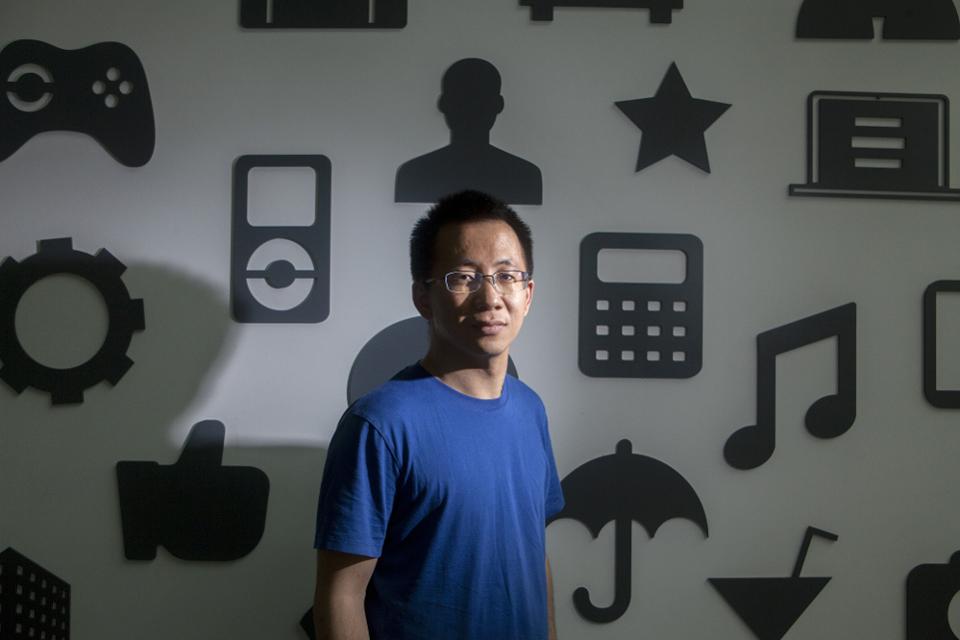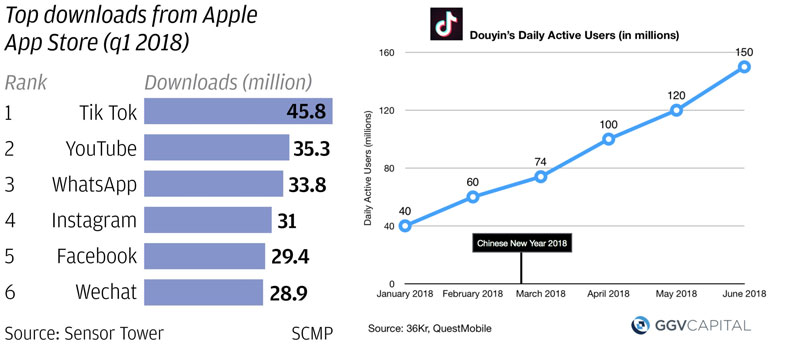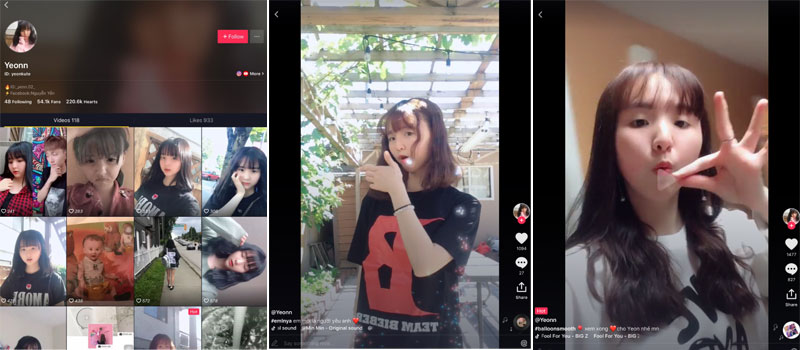Douyin (a.k.a. Tik Tok) is the most successful Chinese digital phenomenon that seems to spring out of nowhere to dominate the pastime of Chinese youth. According to the American research company Sensor Tower, the international version of the app was the most downloaded iPhone app worldwide, totaling 45.8 million and surpassing Facebook, YouTube, and Instagram. Let’s have a closer look at Douyin success story and the reasons behind it.
Douyin, which literally means “shaking sound” (or “vibrato”) in Chinese, has, without a doubt, created some major shockwaves in Chinese digital world and has become the top success story, particularly in short videos space. In June 2018, the app reached 150 million daily active users and has established itself as the world’s fastest growing app, with the biggest music video community globally.
Zhang Yiming, founder of Toutiao – another hugely popular news aggregator with over 120 million active daily users – is the man behind Douyin success. The technology behind both platforms is underpinned by AI-based algorithms that are designed to learn user preferences in order to fine tune serving the most suitable content.
PHOTO: Zhang Yiming, founder of Beijing ByteDance Technology Co.(Photo by Giulia Marchi/Bloomberg)
Douyin is a deceptively simple app allowing users to do basically do these three things:
- Watching 15 seconds long video clips that run as a never-ending feed;
- Shooting and editing 15 seconds videos directly with the phone;
- Adding filters and special effects to the videos and secretly hoping that they will go viral.
How does an app, which was virtually unknown a year ago, become such a sensation practically overnight? How did it manage to beat the earlier and already quite popular short video apps?
Here are the main reasons for Douyin success:
Technology is the key
Douyin main advantage lies in the technology under the hood. Although, it may seem ridiculously simple, there is a lot of intelligence packed into the platform. It uses sophisticated machine learning algorithms deciding which videos should be served to users, so no two feeds are ever the same. The goal is to hook the users serving them videos that they are most likely to enjoy.
Serving it straight
Rather than focusing on refining the search function, the app developers were betting on having a continuous stream of clips with minimal user control. Only watching the full video or skipping it advances you to the next one. Those choices themselves provide the necessary feedback to the app, which is, in turn, used to further refine the feed.
Tapping into the right demographics
Douyin has been marketing the app for just the right audience: young people in their early-to-mid-twenties, living in 1st and 2nd tier cities and primarily females. As the app popularity continued to rise, now about half of the users come from 3rd and 4th tier cities and the gender split is getting more even.
As it is often noted, with all the entertainment options around, the attention span of that particular demographics is notoriously short making bite-sized 15 seconds clips especially easy for consumption.
Unleashing creativity of common people
The vast majority of the clips are produced by ordinary people using their phones, most typically shot over a popular song’s background. The app makes it super easy for anyone to come up with original content – video editing function are easy to use and by adding special effects and applying original filters, the clips can be made ready for sharing within minutes.
In fact, most of the videos that went viral on Douyin were the dorkiest ones imaginable.
Moreover, in order to stimulate creativity, Douyin often runs contests asking users to shoot videos on a particular topic.
Nurturing early adopters
Douyin has understood the importance of getting creative early adopters on board as early as possible. It reached out to artists and internet celebrities generating the pool of loyal content creators who could produce high quality clips.
As the user base grew, more and more people saw the success of those early adopters. As a result, the prospect of stardom drove even more users to the app, creating a powerful network effect.







